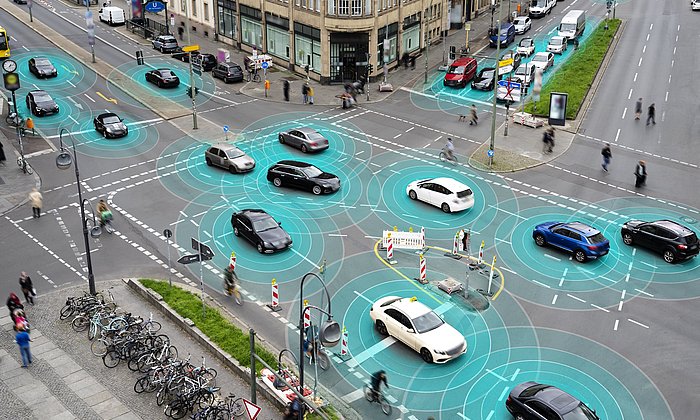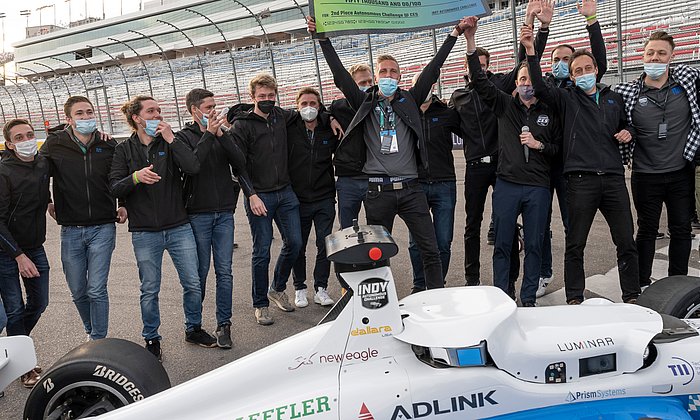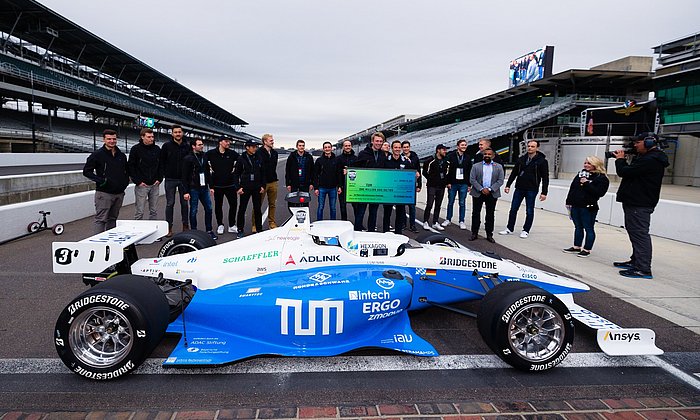Racing car with artificial intelligence wins in Las Vegas
TUM wins again at the Indy Autonomous Challenge in the USA
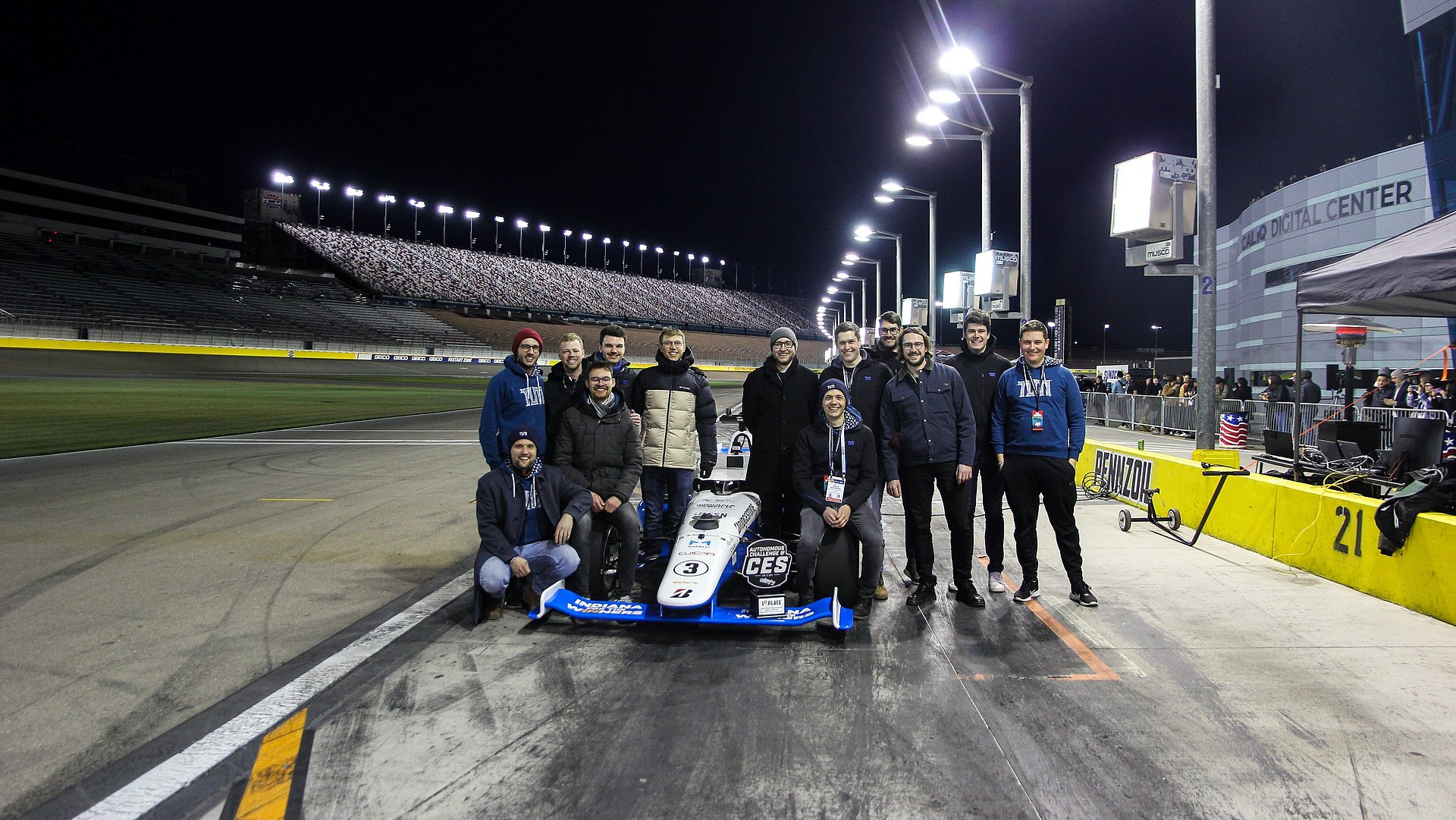
TUM's autonomous racing car again took first place in the Indy Autonomous Challenge. The race took place during the CES electronics trade fair at the Las Vegas Motor Speedway, an oval track usually used for the famous NASCAR races in the USA. Without any drivers and thanks to revised algorithms and the appropriate sensor technology, the Munich team managed to bring victory to Bavaria at around 250 km/h.
For the race, all racing teams work with the same cars and, therefore, the same hardware, such as sensors and computers. However, the teams write the intelligent software for the competition themselves. TUM makes its code freely available as an open-source project, which is why other teams can access it.
More degrees of freedom for TUM racing cars
This year, the TUM team has integrated a revised software structure and a new path planner into the vehicle. In the future, the planner will also be used on classic circuits, giving the car more freedom. A new algorithm that can localize the vehicle independently and precisely with the help of collected sensor data was also tested for the first time. "The fact that our adapted and newly developed systems helped us to win makes us incredibly happy. We knew that our software worked, but we also greatly revised our algorithms this year. Gaining victorious from the competition naturally encourages us to work more. However, we are already working on fine-tuning the software for future races," explains team boss Simon Hoffmann.
Prof. Thomas F. Hofmann, President of TUM, said: "And once again, we can congratulate the team on a great performance! Once again, TUM Autonomous Motorsport proves that curiosity, team spirit, and the conscious dissolution of the boundaries between theory and practice guarantee success. At TUM, we try every day to offer clever minds the right framework conditions to realize their ideas. I am pleased to see when these opportunities are used and turned into lasting success. We are proud of our winning team!"
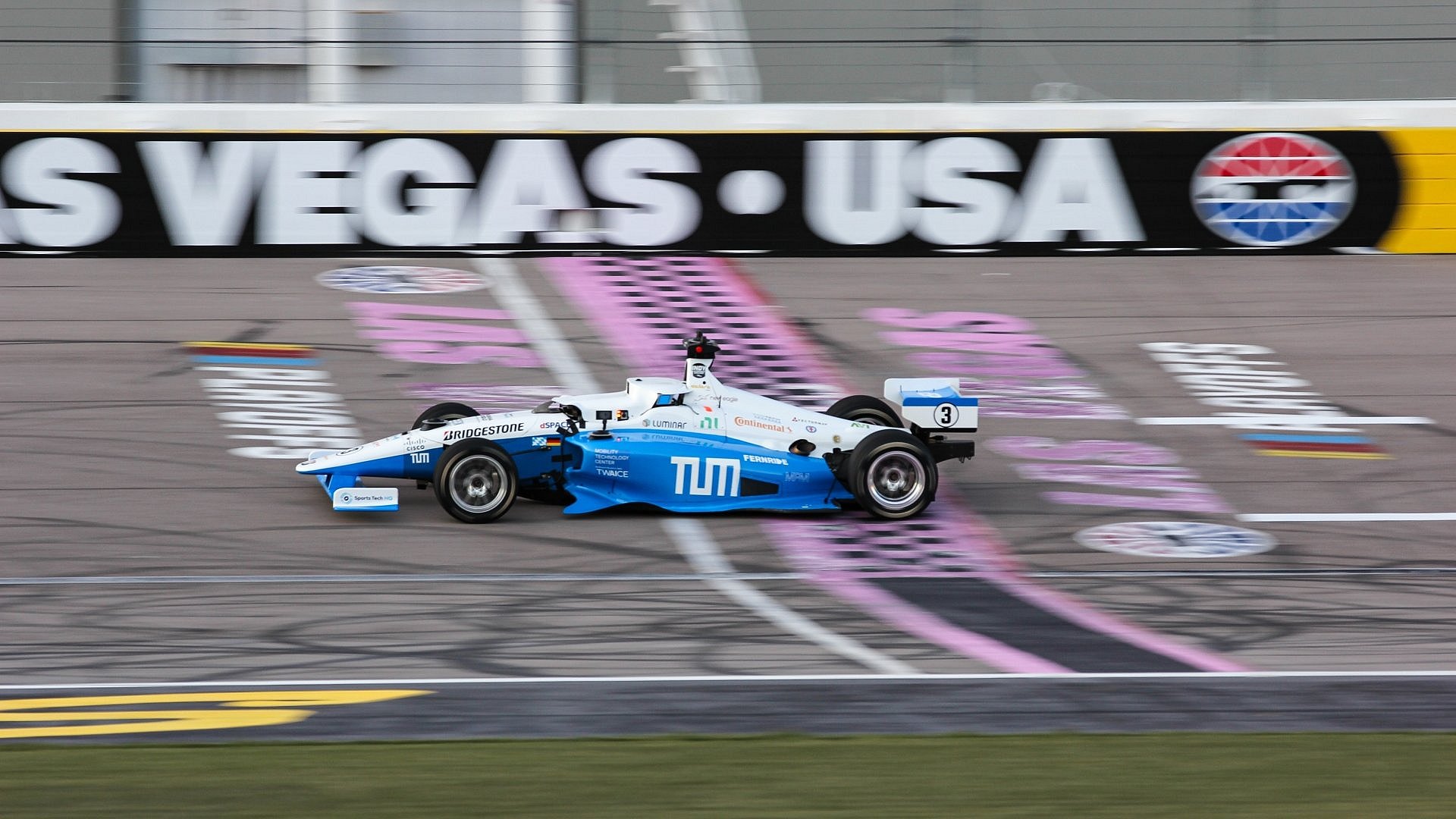
Teams work towards the same vision despite competition
Despite the competition on the track, the different teams are not working against each other but on the same vision. What is learned during autonomous driving on the racetrack should later be used in general road traffic to ensure safety. "A technological leap like the one we experienced here in just one year of development was only possible thanks to the excellent cooperation between all the teams," says Prof. Markus Lienkamp from the Chair of Automotive Engineering at TUM. "We will soon be transferring our open source approach to road traffic and thus accelerating the pace of development even further. This will bring university competition from the race track to people's everyday lives."
Further races in Monza and Abu Dhabi
However, the race in Las Vegas will not be the last for the team; in 2024, TUM Autonomous Motorsport will be heading to legendary racetracks, among others. The team will prove itself on the Formula 1 circuit in Monza, a track that allows high speeds due to its layout. The Grand Prix circuit in Abu Dhabi is also on the agenda this year. The team also wants to show how much research into autonomous vehicles has progressed at TUM.
Technical University of Munich
Corporate Communications Center
- Andreas Huber
- presse@tum.de
- Teamwebsite
Contacts to this article:
Simon Hoffmann
Teamlead TUM Autonomous Motorsport
simon.hoffmann@tum.de
